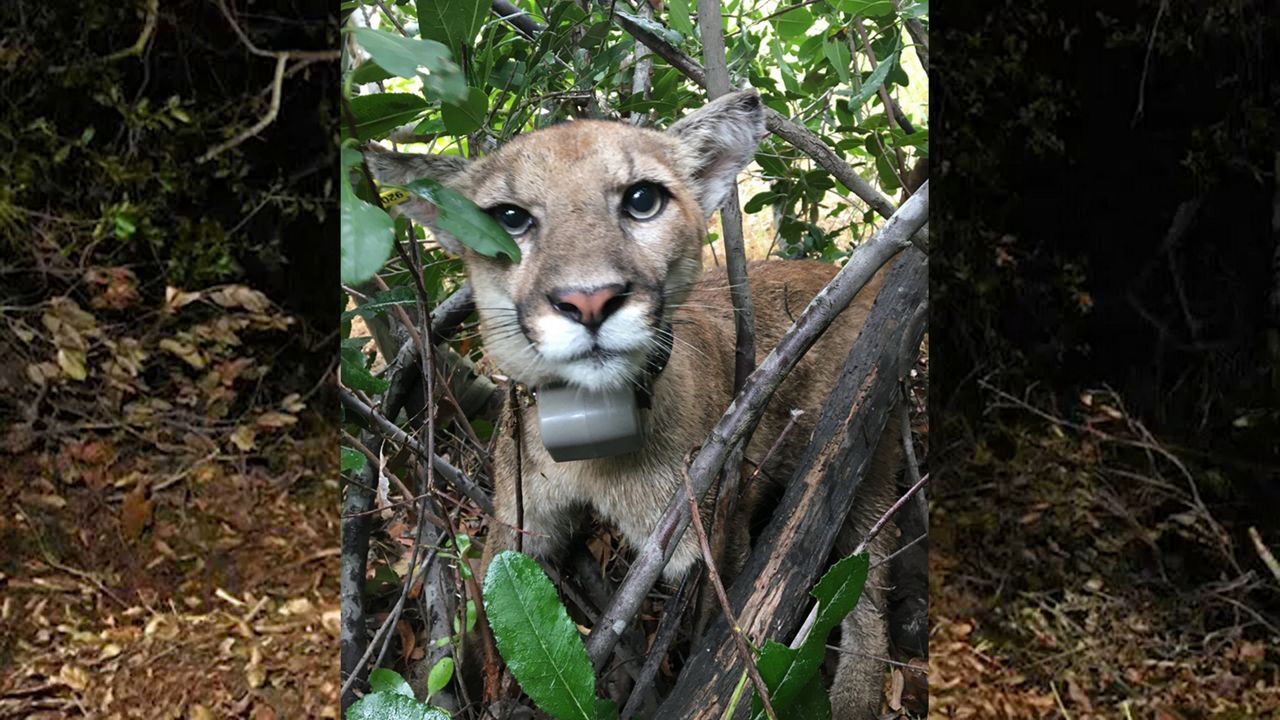LOS ANGELES - A new mountain lion was added to the National Park Service's study of mountain lions in the Santa Monica Mountains on Tuesday. The young, 50-pound female, dubbed 'P75' was discovered on Monday morning in a tree in a Pacific Palisades trailer park.
Los Angeles Police Department secured the scene so the lion could be safely tranquilized and removed by wildlife officers and biologists. The young lion was then outfitted with a GPS tracking color and an ID tag was placed in her ear.
Once the tranquilizer wore off, the lion was safely released into the Santa Monica Mountains National Recreation Area, becoming the 75th lion to join the Park Service's study.
P75 also became the 10th active, collared mountain lion in the area.
The announcement of P75 joining the Park Service study came the same day that the Center for Biological Diversity and the Mountain Lion Foundation formally petitioned the state Fish and Game Commission to seek protection for mountain lions in the Santa Monica mountains.
The petition also urged protections for lions in the Santa Ana, San Bernardino, and San Gabriel mountains.
The groups cited a March, 2019 study in which researchers from UC Davis, UCLA, and the National Park Service predicted that under certain circumstances, the Santa Ana population could be extinct within 12 years, and the Santa Monica population within 15.
"Our mountain lions are dying horrible deaths from car collisions and rat poison, and their populations are at risk from in-breeeding too," said Tiffany Yap, a biologist at the Center for Biological Diversity and primary author of the petition, speaking to City News Service.
"Without a clear and legal mandate to protect mountain lions from the threats that are killing them and hemming them in on all sides, these iconic wild cats will soon be gone from Southern California."
Southern California mountain lions are prone to human-caused mortality due to hazardous freeway crossings, retaliatory killings for preying on livestock, and from consuming prey that's ingested toxic rodent poisons.
With genetic diversity also dangerously low, inbreeding is another threat to area mountain lion populations.
Mountain lions play an important role in the overall California ecosystem.
City News Service contributed to this report.



